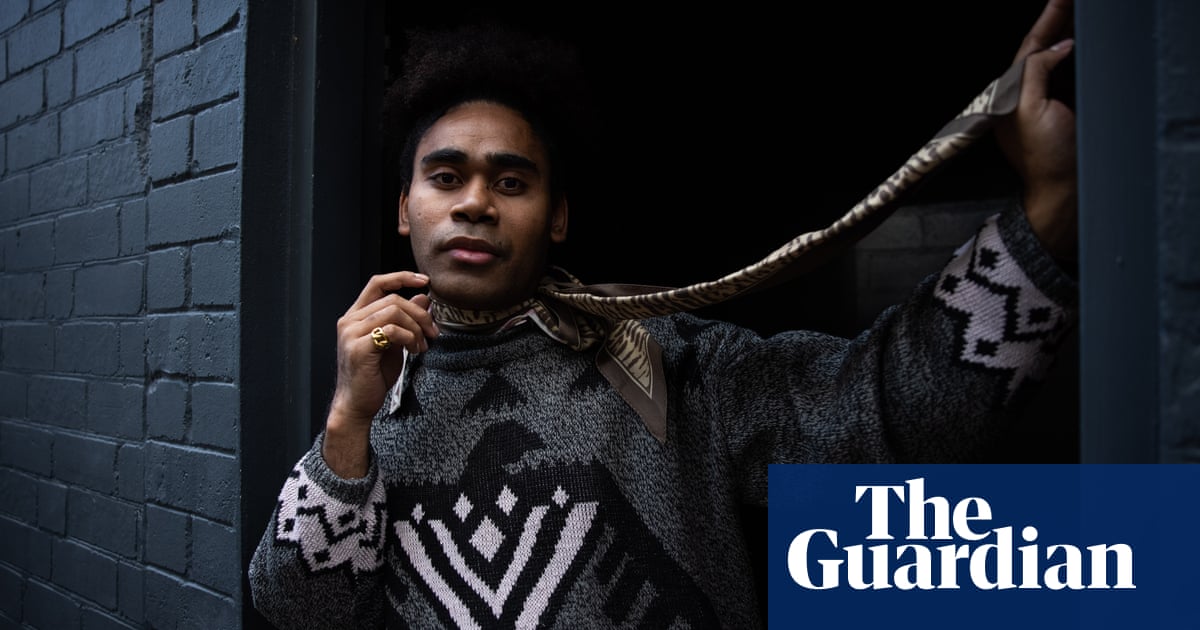From Suva runways to the pages of Vogue: the rising star of Fiji’s fledgling fashion scene - 2 minutes read

The young designer has done what so many in the Pacific country have dreamed of but not had the opportunity to do.
Sponsored by the entire Fiji fashion community, which recognised his promise and raised money for his fashion school fees, he has completed training at the Fashion Design Studio at Tafe NSW in Australia, making him one of the few Fijian designers to have been able to access professional training.
In May, he brought an expanded version of his graduate collection from Sydney to Suva for the closing show of Fiji Fashion week, where it was received by cheering fans, well-wishers and supporters.
“I was bullied a lot because I’m gay,” says Davetawalu. “They would say: ‘Why are you always designing dresses? Why not do something in a masculine way?’ One morning I ran away and I never went back.”
Whippy-Knight aims to put fashion at the forefront of the cultural conversation in Fiji. She has pushed for local fashion education and other initiatives to benefit the industry, such as the establishment of a fashion council, an incubator for budding designers and greater state support.
She has mounted annual runway shows since 2007 as a platform for emerging designers like Davetawalu to showcase their craft, and find buyers. As a result, a number of local designers – such as Samson Lee, Moira Solvalu and Michael Mausio, all of whom specialise in bold prints – have gone from showing at Fiji Fashion Week with no formal design training to developing viable, albeit small, businesses.
The prints hold global potential; that has already been exploited by outsiders. A decade ago, sportswear giant Nike teased a line of printed women’s leggings inspired by Fijian, Samoan and Maori tattoo designs; and in 2013 now-defunct New York women’s wear brand Nanette Lepore came under fire for cultural appropriation after using a Fijian masi design (and mislabelling it as ‘Aztec’). Both companies pulled these products in response to outcry from Pacific communities.
Source: The Guardian
Powered by NewsAPI.org